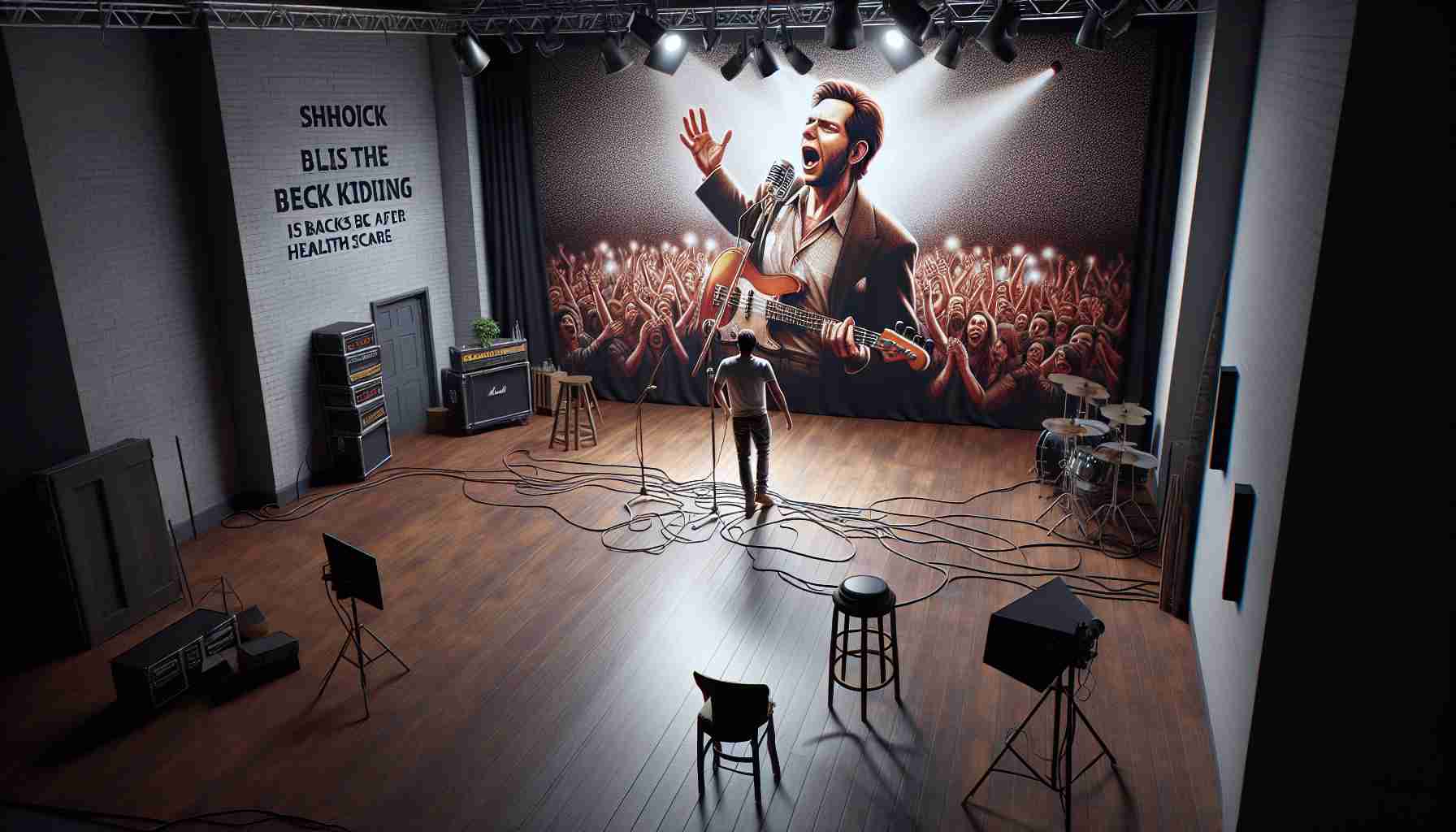Iconic Artist’s Hospitalization and Recovery
Renowned Spanish singer Raphael, aged 81, has been discharged from the hospital after ten days of treatment following a serious health incident. Initially thought to be a stroke, further diagnosis revealed he is battling primary cerebral lymphoma. This diagnosis was made just before he was scheduled to participate in a Christmas special for TVE’s show La Revuelta.
Emerging from the Doce de Octubre Hospital in Madrid, Raphael left with a smile, sitting in the passenger seat of a car. His son, Jacobo, reassured fans and media that his father is doing well, while choosing not to stop for press questions to avoid a chaotic scene outside.
In a recent medical update reached by the hospital, it was confirmed that Raphael is suffering from two brain nodules located in the left hemisphere, which explained his concerning neurological symptoms. As a result, the celebrated artist has announced the postponement of his 2025 tour concerts in America, leaving his upcoming performances in Spain uncertain.
Primary cerebral lymphoma is a rare form of cancer affecting the brain, related to malignant transformation of lymphocytes, vital components of the immune system. Symptoms may include nausea, headaches, confusion, and seizures, typically worsened by age-related immune decline. Despite this daunting health battle, Raphael’s resilience continues to shine.
Raphael’s Health Journey: What Fans Need to Know
Renowned Spanish singer Raphael, known for his powerful voice and emotive performances, has recently faced a significant health challenge. After spending ten days in the Doce de Octubre Hospital in Madrid for treatment, he has been discharged, signaling a positive step in his recovery journey. The initial concern revolved around a stroke, but doctors later diagnosed him with primary cerebral lymphoma, a rare type of brain cancer affecting the immune system’s lymphocytes.
Understanding Primary Cerebral Lymphoma
Primary cerebral lymphoma is a rare and aggressive form of non-Hodgkin lymphoma that occurs primarily in the brain. Typically, it presents as one or more tumors, causing a range of neurological symptoms including:
– Headaches: Often severe and persistent.
– Nausea: Resulting from increased intracranial pressure.
– Seizures: A response to abnormal brain activity.
– Confusion and Memory Issues: Difficulty concentrating or remembering recent events.
This condition is most prevalent in older adults, especially those with compromised immune systems, making Raphael’s battle particularly concerning given his age of 81.
Raphael’s Recovery and Future Plans
Upon leaving the hospital, Raphael expressed optimism, although his son, Jacobo, confirmed that the artist’s health issues have led to the postponement of his 2025 concerts in America. Fans are left wondering about his upcoming performances in Spain and future engagements. While traditional medical protocols may be burdensome, advancements in treatment and the artist’s determination may play a crucial role in his recovery.
Pros and Cons of Primary Cerebral Lymphoma Treatments
When dealing with primary cerebral lymphoma, several treatment options are available. Here are some pros and cons:
Pros:
– Targeted Therapies: Modern medicine provides a range of targeted therapies that can effectively address lymphoma.
– Supportive Care: Advances in supportive care can improve quality of life during treatment.
– Research Innovations: Ongoing research offers hope for more effective treatments and better outcomes.
Cons:
– Aggressive Nature: This type of cancer is often aggressive, making early detection crucial.
– Potential Side Effects: Treatments can lead to significant side effects, such as fatigue, nausea, and weakened immune response.
Market Trends and Innovations in Treatment
As research progresses, there are noteworthy trends in the treatment of primary cerebral lymphoma:
– Immunotherapy: This innovative therapy leverages the body’s immune system to target cancer cells more effectively and is showing promise in clinical trials.
– Personalized Medicine: Treatments are increasingly tailored to the patient’s specific genetic makeup, improving efficacy.
Predictions for Raphael’s Future
While Raphael’s current health situation casts uncertainty over his touring schedule, many fans are hopeful for a comeback. Given the advancements in cancer treatment and Raphael’s own resilient spirit, he may still return to the stage, inspiring audiences with his passion for music.
In conclusion, Raphael’s journey is not only a testament to the challenges of facing a serious health condition but also highlights the medical advancements that are crucial for improving the quality of life of those affected by primary cerebral lymphoma. As fans continue to rally behind him, there is hope for a successful recovery and future performances.
For more insights into arts and health, visit Raphael Official for the latest updates.
